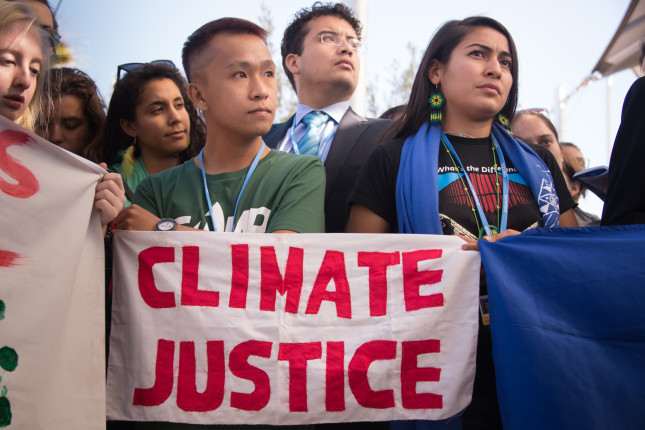-
Top 5 Posts for June 2022
July 18, 2022 By Abegail AndersonFrom climate change to COVID-19 and the war in Ukraine, the world is a landscape of increasing instability. Book-ending the Top 5 posts of June are two articles that explore different aspects of these converging risks. In the top post for June, Steven Gale and Mat Burrows write that globally, younger generations are becoming increasingly disengaged and discontent with their democratic governments, civil society, and institutions. Youth disillusionment is not a result of ignorance to current affairs, but rather a lack of faith in democratic institutions to address today’s most pressing global issues. Tackling youth disillusionment, suggest Gale and Burrows, begins with examining youth engagement trends and placing it at the top of the agenda.
In the fifth top post of the month, the lead authors of SIPRI’s new policy report, Environment of Peace: Security in a New Era of Risk, write that environmental action matters more than ever as armed conflicts like the war in Ukraine combine with climate change and environmental degradation, creating a new global era of risk. The authors explore how growing environmental and security crises are converging, and how they must be addressed together in order to reduce risk to peace and security.In the second top post of June, Wanpen Pajai & Mailee Osten-Tan highlight the impact of plastic pollution in one of Southeast Asia’s most important rivers, Thailand’s Chao Phraya. It’s estimated that 4,000 metric tons of plastic pollution travel through the river each year. The photo essay collaboration between The Third Pole and the China Environment Forum’s “Turning the Tide on Plastic Waste in Asia” Initiative displays riveting images of the challenges posed by plastic pollution and shares a firsthand account traveling the distance of the river and witnessing the negative effects of plastic waste on the environment.
Over in the Western hemisphere, another fragile ecosystem is under threat. The Atacama desert in Chile faces increasing environmental damage as a result of expanding lithium mines, in part to help fuel the global green energy transition. In the third top post of June, Vince Beiser writes about the conundrum of providing the world with its lithium needs, without sacrificing vital ecosystems – a challenge not exclusive to Chile.
In the fourth top post of June, Sarah Davidson highlights an African case study of sustainable water management through transboundary governance of shared water resources in the Kavango-Zambezi Transfrontier Conservation Area (KAZA). As the world faces the twin crises of climate change and biodiversity loss, Davidson calls for responsible natural resource management, especially in the protection of water—a resource important to every aspect of life.
- Disillusioned Youth: A Danger to Democracy by Steven Gale & Mat Burrows
- Plastic River: Following the Waste That’s Choking the Chao Phraya by Wanpen Pajai & Mailee Osten-Tan (Photographer)
- Chile’s Conundrum: Will Saving a Desert Hinder Global Energy Transition? by Vince Beiser
- Sustaining Shared Waters: An African Case Study by Sarah Davidson
- In a Time of Competing Crises, Environmental Action Matters More than Ever by Richard Black, Cedric de Coning, Geoffrey D. Dabelko, Hafsa Maalim, Melvis Ndiloseh, Dan Smith & Caspar Trimmer
Photo Credit: International youth climate justice activists at the COP22 UN climate conference in Marrakesh, Morocco, courtesy of Ryan Rodrick Beiler, Shutterstock.com.
 A Publication of the Stimson Center.
A Publication of the Stimson Center.




